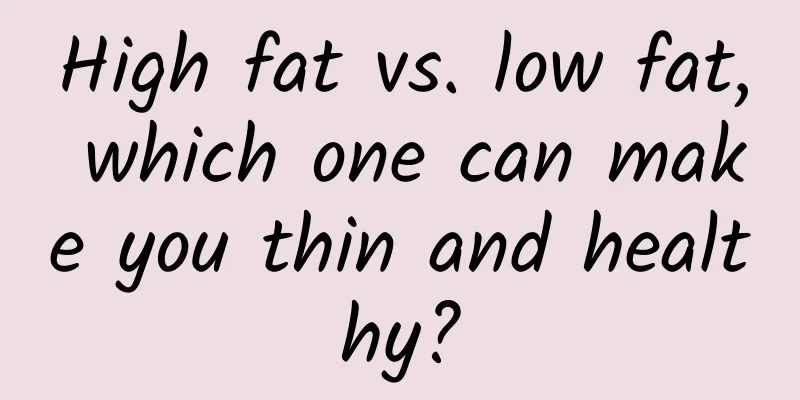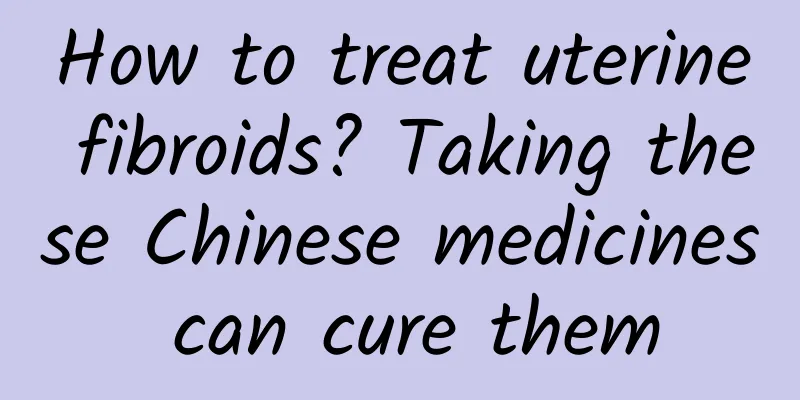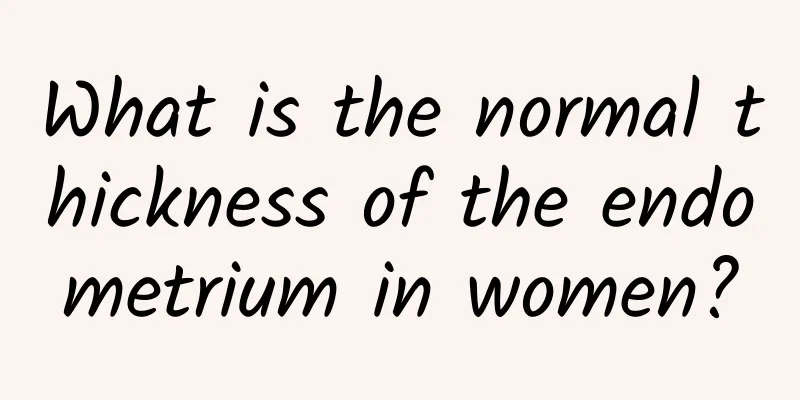High fat vs. low fat, which one can make you thin and healthy?

|
There is no need to deliberately pursue a low-fat diet. Maintaining a balanced diet, eating more "food" and avoiding "foodstuffs" are the highest guiding principles for a healthy diet. I wonder if any readers, after seeing the title of this article, thought: "Is this guy crazy? He must be pretending to be a doctor!" Don't be impatient, please read on patiently. Fat has long been considered the culprit that blocks blood vessels and causes cardiovascular disease. Therefore, a low-fat diet is the basis of a modern healthy diet. Everyone, young or old, men and women, knows that they should eat a "light and low-fat" diet. It was not until the past decade that this concept was once again challenged by academia. In this article, I will share a very interesting dietary study published in the Annals of Internal Medicine to discuss with you which is better, a low-carb and high-fat diet or a low-fat diet! The shocking truth about low-carb high-fat and low-fat In the 2014 issue of Annals of Internal Medicine, American scholar Bazzano collected 148 obese men and women (BMI between 30 and 45) with no history of cardiovascular disease or diabetes. After recording their weight, body fat, blood fat and other parameters in detail, they were randomly assigned to two groups: one group ate a low-fat diet, and the other group ate a low-carbohydrate but high-fat diet (hereinafter referred to as low-carb and high-fat). Nutritionists met with the subjects regularly to instruct them on the dos and don'ts of both diets. People who follow a low-carb, high-fat diet must limit carbohydrates to less than 40 grams per day, while people who follow a low-fat diet must keep fat at no more than 30% of total calories2. A bowl of white rice (with a carbohydrate content of about 50 to 60 grams) already exceeds the standard for a low-carb diet, which shows that this method is not easy for most people!
After one year, the researchers re-examined the physical data of the two groups of subjects and made the following surprising discovery: those who followed the low-carb, high-fat diet lost nearly 6 kilograms in the third month, and maintained their weight well after one year, with no signs of regaining weight. But the low-fat diet group lost only half as much weight as the high-fat group, and did not continue to lose weight after the third month. (As shown below) In terms of body fat percentage, there is also a considerable gap between the two groups. The body fat percentage of the low-fat diet group decreased in the third month of the study, but from the third month to one year, the body fat percentage gradually increased again, and was even higher than one year ago. In contrast, the body fat percentage of the low-carb, high-fat diet group dropped more and remained stable over the course of one year. Twelve months after the experiment began, the body fat of those on the low-carb, high-fat diet decreased by an average of 1.2%, while that of those on the low-fat diet increased by 0.3%. In addition, the blood fat levels of those who followed the low-carb, high-fat diet were significantly improved: their triglycerides dropped lower and their high-density cholesterol increased higher, which may mean that those who followed the low-carb, high-fat diet were less likely to develop cardiovascular disease. Wait, don’t rush out to buy fried chicken! But don’t be too happy too soon, I want to remind you:
More importantly, is a low-carb, high-fat diet the secret to weight loss? That’s not necessarily the case. People who follow a low-carb, high-fat diet consume more protein on average. Protein’s high satiety and ability to increase metabolic rate are essential for weight loss, but does a low-carb, high-fat diet win out because of its high protein characteristics? It's hard for us to know. Furthermore, although this study did not make any recommendations or restrictions on total daily calories, people on the low-carb, high-fat diet voluntarily ate about 100 calories less per day than those on the low-fat diet. Dear readers, imagine, would a roast chicken dinner be more filling than a simple meal of porridge and side dishes? Such research results, then, do not seem to be too surprising. 【One minute reminder from Dr. Scott】 In fact, the results of this study did not surprise the academic community too much. In the past 10 years, at least 20 studies have produced similar results: a low-carb, high-fat diet has a better weight loss effect, while improving blood fat indicators and even helping diabetics control blood sugar. But does this mean that readers can go home and eat as much fried chicken and French fries as they want? Not at all! An ideal low-carb, high-fat diet should include plenty of fruits and vegetables, and fats from natural, unprocessed sources, such as fats in meat, dairy products, olive oil, butter, fish oil, etc. It is best to avoid processed and refined vegetable oils such as soybean oil, sunflower oil, salad oil, and grapeseed oil, or do not use them in high-temperature cooking. The hydrogenated vegetable oils that fast food operators love to use should be "banned" from use. Moreover, the design of these studies is not perfect, such as the differences in protein and calorie intake between the two groups. We still need more and better clinical trials to answer these questions. But I hope these studies can make readers feel less guilty when eating steak and spreading butter. In fact, there is no need to deliberately pursue low fat. Maintaining a balanced diet, eating more "food" and avoiding "foodstuffs" are the highest guiding principles of a healthy diet. This article is from Sancai Culture's "Dr. Scott's One-Minute Weight Loss Classroom" |
<<: 1 bowl of shaved ice = 500 calories. Nutritionists teach you how to eat without gaining weight!
>>: Do you have bulimia? Pay attention to 2 out of 5 items!
Recommend
Increased vaginal discharge is the most common symptom of cervicitis
Speaking of cervicitis, female compatriots should...
What are the dietary taboos for pelvic peritonitis?
The daily diet and dietary therapy of patients wi...
These 3 tests can be used to determine whether you have bacterial vaginosis
There are many methods for checking bacterial vag...
Is uterine cyst serious? Generally no treatment is needed
Many people are worried when they find out about ...
How long is a delayed menstruation considered normal? How to treat delayed menstruation
It is normal for women to delay their menstruatio...
Eating probiotics can help you lose weight easily! Red wine and olive oil are available
If you want to lose weight, do you have to be too...
Can I drink cold drinks if I have pelvic inflammatory disease? I can't eat anything raw, cold or irritating
For some women with pelvic inflammatory disease, ...
What are the main aspects of the examination of ovarian cysts?
The incidence of ovarian cysts has been increasin...
What is candidal vaginitis?
Candidal vaginitis is a common gynecological dise...
What is the "enzyme weight loss" that is popular among Japanese actresses? Enzyme experts reveal: 3 enzyme slimming and beauty secrets
Enzymes can enhance metabolism and remove excess ...
How to differentiate metrorrhagia (dysfunctional uterine bleeding) from other diseases?
Xiaoqin's menstruation has been a little irre...
Do women age quickly after menopause? Eating more black plums and soybeans can delay aging
When women reach a certain age, their ovarian fun...
What are the symptoms of cervical hypertrophy?
Everyone knows that cervical hypertrophy is a com...
Experts tell you the causes of uterine fibroids!
There is no consensus on the tissue origin of ute...
How to prevent cervical precancerous lesions through lifestyle habits
How can women prevent the occurrence of cervical ...









